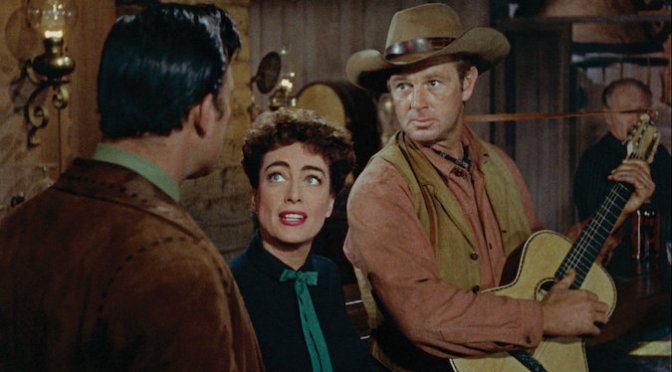 As the Writer’s Guild of America enters a strike in L.A., Motion State stands in solidarity with writers and in support of their proposals for fair wages, rights and benefits for writers’ rooms, restrictions on AI involvement in screenwriting, and more. As if to underscore the importance of the writer, Closing Night at this year’s Independent Film Festival Boston saw the area premiere of Celine Song’s beautifully-written feature debut Past Lives. Song, a WGA member, spoke explicitly in “fierce support” of the strike prior to the screening. But the powerful writing of Past Lives made that point itself, actually, and it’s one of the most surefooted film debuts so far this year.
As the Writer’s Guild of America enters a strike in L.A., Motion State stands in solidarity with writers and in support of their proposals for fair wages, rights and benefits for writers’ rooms, restrictions on AI involvement in screenwriting, and more. As if to underscore the importance of the writer, Closing Night at this year’s Independent Film Festival Boston saw the area premiere of Celine Song’s beautifully-written feature debut Past Lives. Song, a WGA member, spoke explicitly in “fierce support” of the strike prior to the screening. But the powerful writing of Past Lives made that point itself, actually, and it’s one of the most surefooted film debuts so far this year.
Na Young is twelve years old when her family immigrates to Canada from Seoul, and her bond with her best friend Hae Sung is effectively broken by the 6,000-mile remove. They connect via Skype years later, after a twenty-something Hae Sung (Teo Yoo) seeks her out following his mandatory military service. But Na Young is now Nora (Greta Lee), living on her own in New York City, and their reconnection is short-lived. Another twelve years pass before the pair are reunited again, but they’re adults now. Nora is married to Arthur (John Magaro), Hae Sung is an engineer, and it’s possible that they’re entirely different people than the pair of young friends who knew each other in Seoul a lifetime ago.




 In
In 
 Wait! Before you roll your eyes and seek out a piece with a less whiny opening line, know that this is a generally favorable review of the Amazon series inspired by Tolkien’s creations. Much has been written already about the liberties taken by showrunners J.D. Payne and Patrick McKay, and sure: there are diversions, detours and a significant condensing of the timeline of Middle-Earth throughout the show’s first season, some of which result in frustrating missed opportunities. Entire diatribes have been dedicated to lamenting the fact that the Rings of Power elves have short hair, or that the Númenóreans should technically be like nine feet tall, or that mithril or the palantíri work very differently here (
Wait! Before you roll your eyes and seek out a piece with a less whiny opening line, know that this is a generally favorable review of the Amazon series inspired by Tolkien’s creations. Much has been written already about the liberties taken by showrunners J.D. Payne and Patrick McKay, and sure: there are diversions, detours and a significant condensing of the timeline of Middle-Earth throughout the show’s first season, some of which result in frustrating missed opportunities. Entire diatribes have been dedicated to lamenting the fact that the Rings of Power elves have short hair, or that the Númenóreans should technically be like nine feet tall, or that mithril or the palantíri work very differently here (
 Tár is perhaps not the most exciting title ever conceived for a film, but a character as narcissistic as Lydia Tár wouldn’t dare permit any confusion about who’s in charge here. This is her story, and in Tár’s mind that means she alone is the owner of that story. A story, a piece of music, a relationship, a marriage — these are not conversations or discussions, not malleable things that allow for multiple participants. These are possessions, shouldered entirely by their owner, and in a way those possessions define the identity of the owner herself. Any attempt by another to repossess those things, then, would be akin to destroying that identity.
Tár is perhaps not the most exciting title ever conceived for a film, but a character as narcissistic as Lydia Tár wouldn’t dare permit any confusion about who’s in charge here. This is her story, and in Tár’s mind that means she alone is the owner of that story. A story, a piece of music, a relationship, a marriage — these are not conversations or discussions, not malleable things that allow for multiple participants. These are possessions, shouldered entirely by their owner, and in a way those possessions define the identity of the owner herself. Any attempt by another to repossess those things, then, would be akin to destroying that identity.
 Good action direction is its own beast, a delicate balance of choreography, cinematography and editing that usually has two distinct goals: be exciting and be coherent. Those goals can be at odds, of course, as the more frantic and fast-paced an action sequence gets, the more likely it is to lose the viewer. 2002 was a watershed year for the actioner with the release of The Bourne Identity, which sported a super-fast-cutting editing style that worked brilliantly in its best moments; Bourne Supremacy, the sequel, doubled-down on this technique and arguably set the bar even higher than its predecessor. But many of the films that aped Bourne in the ensuing years failed to balance those two goals, resulting in messy fight scenes and chase sequences that were hard to follow. Heck, there are even a few moments in the trilogy-capping Bourne Ultimatum that lose the thread of logic in their haste.
Good action direction is its own beast, a delicate balance of choreography, cinematography and editing that usually has two distinct goals: be exciting and be coherent. Those goals can be at odds, of course, as the more frantic and fast-paced an action sequence gets, the more likely it is to lose the viewer. 2002 was a watershed year for the actioner with the release of The Bourne Identity, which sported a super-fast-cutting editing style that worked brilliantly in its best moments; Bourne Supremacy, the sequel, doubled-down on this technique and arguably set the bar even higher than its predecessor. But many of the films that aped Bourne in the ensuing years failed to balance those two goals, resulting in messy fight scenes and chase sequences that were hard to follow. Heck, there are even a few moments in the trilogy-capping Bourne Ultimatum that lose the thread of logic in their haste.
 Strong female character is a phrase that gets thrown around a lot in woke film crit, and it’s probable that the arbiter of this particular criteria should maybe be someone other than weak male film critic — but here we are. Watching a movie as fantastic as Johnny Guitar, it’s hard not to wonder if the phrase is in fact more often applied to female characters who basically act like male characters, resorting easily to physical and verbal violence. The leads in
Strong female character is a phrase that gets thrown around a lot in woke film crit, and it’s probable that the arbiter of this particular criteria should maybe be someone other than weak male film critic — but here we are. Watching a movie as fantastic as Johnny Guitar, it’s hard not to wonder if the phrase is in fact more often applied to female characters who basically act like male characters, resorting easily to physical and verbal violence. The leads in 
 “Chekhov’s Gun” is a commonly-quoted dramatic principle underscoring the necessity of every element of a narrative story. If a gun is shown in the first act, it must be fired in the third. Elements that do not impact the story — unfired guns — should be removed entirely, so as not to make false promises or clutter the story with unnecessary details. Chekhov’s principle is intrinsically related to foreshadowing, and there are several ways to use it. You can use it well, giving your story the qualities of a fine-tuned machine. You can use it poorly, relying on it as a crutch such that your story loses its natural, organic feeling. Or you can use it like Jean-Luc Godard uses it in Contempt: as a massive fuck you to anyone who dares insist that dutifully following the rules is going to make your story better.
“Chekhov’s Gun” is a commonly-quoted dramatic principle underscoring the necessity of every element of a narrative story. If a gun is shown in the first act, it must be fired in the third. Elements that do not impact the story — unfired guns — should be removed entirely, so as not to make false promises or clutter the story with unnecessary details. Chekhov’s principle is intrinsically related to foreshadowing, and there are several ways to use it. You can use it well, giving your story the qualities of a fine-tuned machine. You can use it poorly, relying on it as a crutch such that your story loses its natural, organic feeling. Or you can use it like Jean-Luc Godard uses it in Contempt: as a massive fuck you to anyone who dares insist that dutifully following the rules is going to make your story better.
 Jimmy Stewart was in a lot of Westerns. From Destry Rides Again (1939) all the way to The Shootist (1976), the actor’s continual returns to the frontier nearly end up signposting the decades-long rise and fall of the genre itself. In the early 1960s, just prior to the introduction of a violent revisionism courtesy of Sam Peckinpah and Sergio Leone, Stewart teamed with John Ford and turned out classics like The Man Who Shot Liberty Valance and How the West was Won. Prior to that, as the Western was enjoying its heyday in the 1950s, Stewart starred in the progressive-for-the-time Broken Arrow and in a string of Westerns from director Anthony Mann, including the eventual classic Winchester ’73. But the most underrated Stewart Western — and maybe one of the most underrated Westerns period — is another feature from Mann called Bend of the River.
Jimmy Stewart was in a lot of Westerns. From Destry Rides Again (1939) all the way to The Shootist (1976), the actor’s continual returns to the frontier nearly end up signposting the decades-long rise and fall of the genre itself. In the early 1960s, just prior to the introduction of a violent revisionism courtesy of Sam Peckinpah and Sergio Leone, Stewart teamed with John Ford and turned out classics like The Man Who Shot Liberty Valance and How the West was Won. Prior to that, as the Western was enjoying its heyday in the 1950s, Stewart starred in the progressive-for-the-time Broken Arrow and in a string of Westerns from director Anthony Mann, including the eventual classic Winchester ’73. But the most underrated Stewart Western — and maybe one of the most underrated Westerns period — is another feature from Mann called Bend of the River.
 I am admittedly predisposed to movies like The Northman — bloody, epic revenge tales with a strange angle, a hyper-specific period setting, or both. I’m also a huge fan of
I am admittedly predisposed to movies like The Northman — bloody, epic revenge tales with a strange angle, a hyper-specific period setting, or both. I’m also a huge fan of